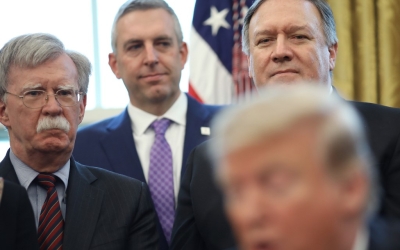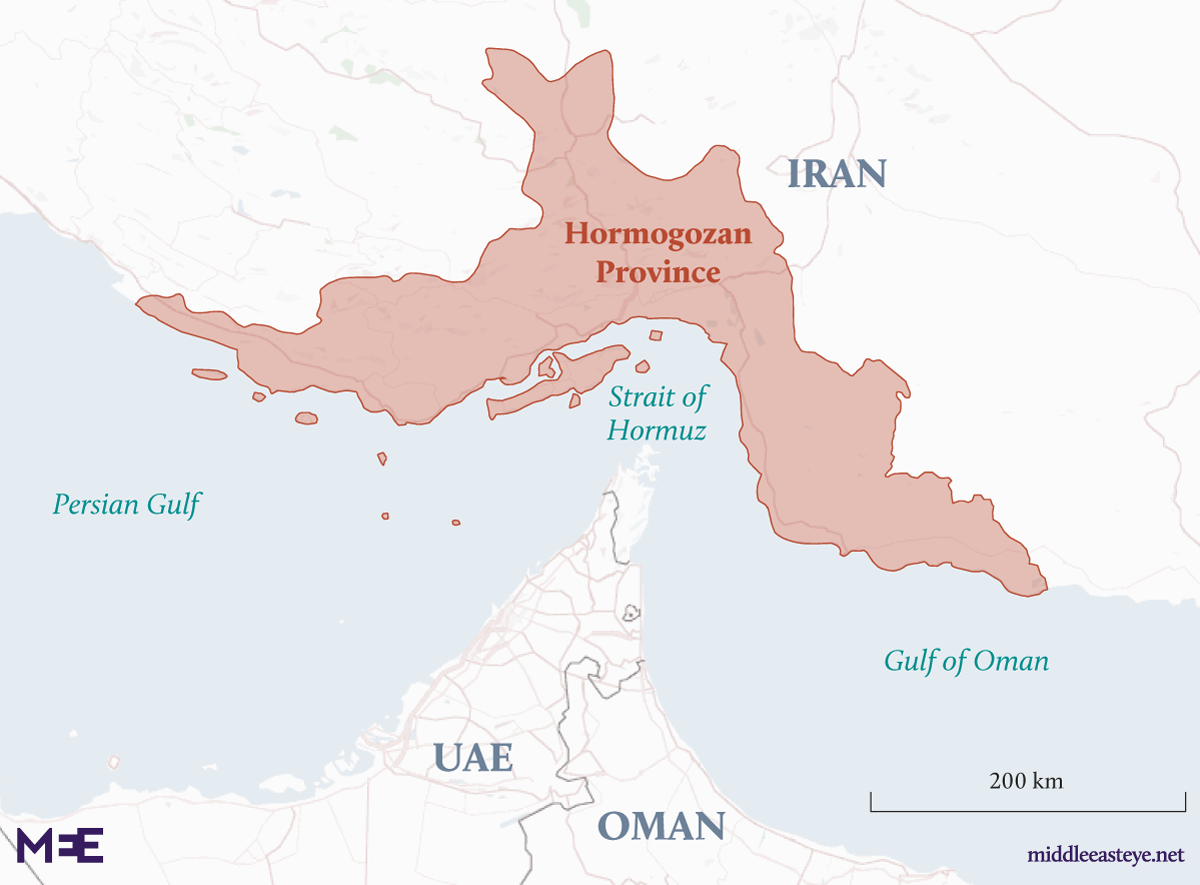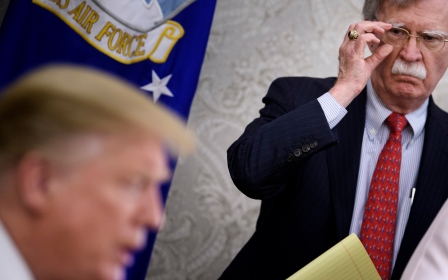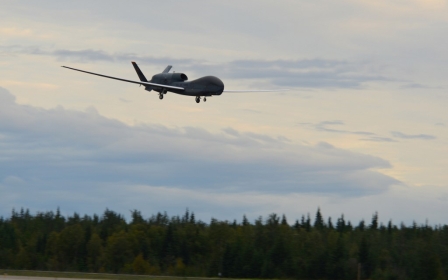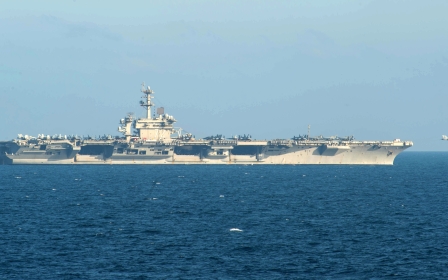Democrats warn Trump against unilateral decisions on Iran
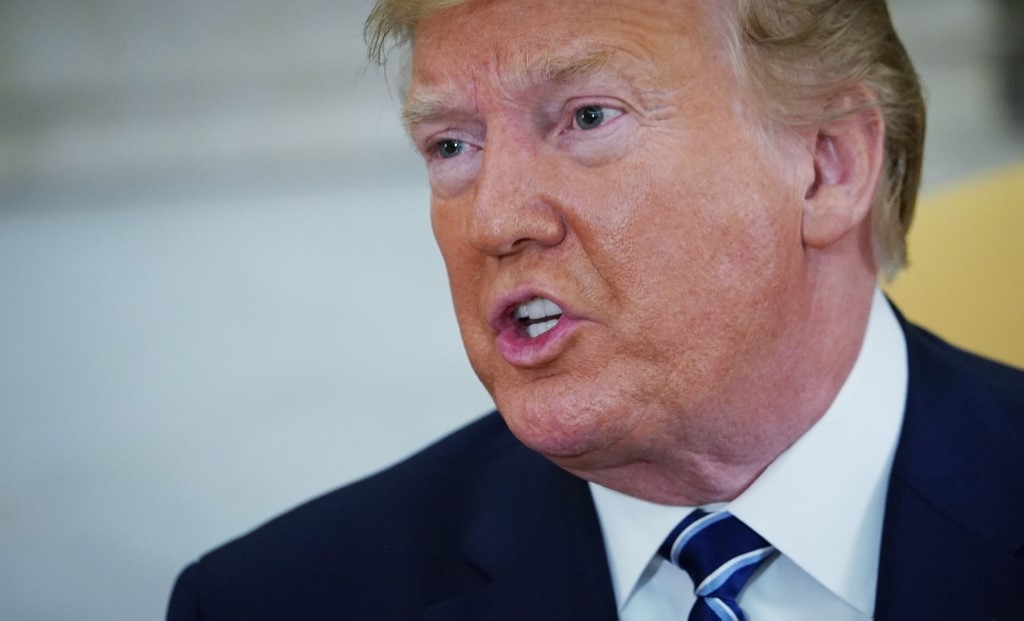
US lawmakers expressed concern over Donald Trump's military brinksmanship with Iran, stressing that the legislative branch, rather than the White House, has the power to declare war.
The president late on Thursday ordered military strikes against Iran and then aborted the mission minutes before the operation was set to take place.
Democrats in Congress complained that the decision was made solely by Trump without consulting lawmakers.
Trump had met with top legislators from both major parties on Thursday afternoon.
On Friday, Speaker of the House Nancy Pelosi, a Democrat, said that lawmakers had already warned against attacking Iran without the backing of congress.
'Congress must assert its constitutional authority and stop Trump from going to war'
- Bernie Sanders
“Democratic leaders emphasised that hostilities must not be initiated without the approval of Congress," Pelosi said in a statement.
Several top contenders in the 2020 Democratic primaries also publicly condemned Trump's actions, calling for legislative involvement in decisions on conflict.
"A war with Iran would be a disaster and lead to endless conflict in the region. Congress must assert its constitutional authority and stop Trump from going to war," Senator Bernie Sanders said on Twitter.
Senator Kirstin Gillibrand posted a letter to the president urging him to seek congressional authorisation before getting the US into a military conflict.
Meanwhile, one of Trump's top allies, Republican Senator Lindsey Graham, voiced disappointment that the president did not go forward with the strike, posting a series of statements on the dangers of "inaction".
"When it comes to the Middle East, there are seldom good choices. But in some instances, failing to act can prove to be the most dangerous choice of all," Graham said in one of his tweets.
House Democrats on Wednesday voted to repeal the 2001 Authorization for Use of Military Force (AUMF) that was passed in the days after 9/11 to give broad war-making powers to then President George W Bush in order to go after the perpetrators of the attack.
Analysts and lawmakers fear that administration officials may use accusations against Tehran of supporting al-Qaeda to strike Iran without congressional consent, using the AUMF.
Efforts to repeal the 2001 authorisation are likely to flail in the Republican-controlled Senate, however.
Daryl G Kimball, Executive Director of the Arms Control Association, told Middle East Eye that legislators need to demand control over war powers in order to keep the situation with Iran at bay.
"Congress needs to not only be consulted, but it must approve any plans and evaluate what the consequences would be and what the alternatives are before President Trump commits US blood and treasure to another major conflict in the Middle East," Kimball said.
US 'ready to go'
Despite Trump's last minute choice to stop the retaliatory strike, he has not ruled out the possibility of military action, tweeting that the US is still "ready to go".
The attacks would have come in retaliation to the downing of a US drone by Iranian forces, who have said that the unmanned plane was flying over their territorial waters. Washington maintains that the drone did not violate Iran's airspace.
Hussein Ibish, a senior resident scholar at the Arab Gulf States Institute in Washington, said that the decision not to strike back against Iran was one of the "most intelligent" moves of Trump's presidency.
"By not striking back, he is refusing to blink first," Ibish said.
"I think it was clear that Iran was trying to provoke the United States into forcing them to choose between going into a military conflict without international support or looking weak by not striking back."
Mounting tensions
Tensions between the US and Iran have been mounting since last year when Trump pulled out of the 2015 nuclear deal, which saw Tehran significantly scale back its nuclear programme in exchange for lifting sanctions.
In recent months, Washington has imposed a series of crippling sanctions against Iran as part of a "maximum pressure" campaign to isolate Iran and limit its role in the region.
The downing of the drone was the latest in a series of attacks in the Middle East that Washington has blamed on Tehran over the past few weeks, including an assault on two oil tankers in the Gulf of Oman.
"The only thing that's clear is that there is a debate amongst the president's advisers about whether to retaliate in some way to the downing of the navy reconnaissance drone," Kimball told MEE.
Indeed, the New York Times reported on Thursday that National Security Adviser John Bolton and other officials were backing the military planned strikes, but Pentagon officials feared that the attacks may snowball into a bigger conflict.
"Leaders in the United States and Iran may say they don't seek war, but they are taking actions that create the conditions for such a war to break out," Kimball added.
Middle East Eye propose une couverture et une analyse indépendantes et incomparables du Moyen-Orient, de l’Afrique du Nord et d’autres régions du monde. Pour en savoir plus sur la reprise de ce contenu et les frais qui s’appliquent, veuillez remplir ce formulaire [en anglais]. Pour en savoir plus sur MEE, cliquez ici [en anglais].


